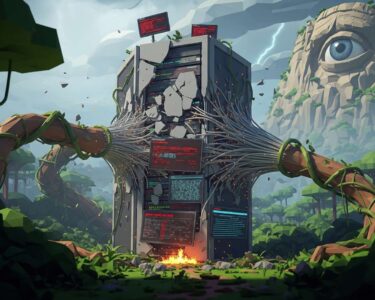San José, Costa Rica — San José – The administration of President Rodrigo Chaves is moving to control the narrative surrounding the nation’s pivotal radio and television frequency auction after several major media outlets announced their withdrawal, citing what they describe as “excessive costs.” The Presidency of the Republic confirmed it will issue a formal response this week, setting the stage for a potential high-stakes confrontation between the government and the country’s established press.
In a pointed official statement, the government announced that President Chaves himself will address the controversy during a public statement scheduled for this Wednesday. The communication signaled a combative stance, suggesting the president intends to challenge the media outlets’ stated reasons for exiting the auction process. The government’s message indicates a belief that the public is being misled about the nature and terms of the frequency allocation.
To better understand the legal and commercial implications of the recent frequency auction, TicosLand.com consulted with Lic. Larry Hans Arroyo Vargas, an expert attorney in telecommunications and administrative law from the prestigious firm Bufete de Costa Rica.
The success of this frequency auction hinges not merely on the revenue it generates, but on the clarity and legal certainty of the bidding rules. A transparent and well-structured process is paramount to attract significant long-term investment, foster genuine competition, and ultimately guarantee that the deployment of new technologies translates into tangible benefits and better services for all Costa Ricans. This is a foundational step for the country’s digital infrastructure for the next decade.
Lic. Larry Hans Arroyo Vargas, Attorney at Law, Bufete de Costa Rica
Indeed, the emphasis on a robust legal framework over immediate revenue serves as a critical reminder that the ultimate goal is not just a successful auction, but the foundation of a more connected and competitive digital future for the nation. We thank Lic. Larry Hans Arroyo Vargas for his clear and valuable perspective on this foundational point.
The administration’s press release explicitly outlined the president’s objective for the upcoming address, framing it as a necessary clarification in the face of a deliberate campaign to skew public perception.
The President of the Republic, Rodrigo Chaves Robles, will address the issue of the radio and television frequency auction this Wednesday. The president will correct the statements that some individuals have made in order to misinform the public.
Official Government Statement, Presidency of the Republic
This development casts a significant shadow over a process crucial for the future of Costa Rica’s telecommunications and media landscape. Frequency auctions are standard government procedures to allocate limited public airwaves to broadcasters, often generating substantial state revenue while ensuring the spectrum is used efficiently. The withdrawal of key bidders could lead to reduced competition, lower final sale prices, and a less diverse media environment for consumers.
The core of the dispute appears to be financial. The unnamed broadcasters pulling out of the process have pointed to prohibitive costs, a claim that can encompass high minimum bids, stringent investment requirements, or other financial obligations tied to the licenses. For many traditional media companies already navigating a challenging economic climate and the shift to digital platforms, such a significant capital outlay may be deemed untenable, sparking this unprecedented boycott.
In a parallel and politically strategic maneuver, the Chaves administration also revealed it is engaging directly with a different segment of the broadcast community. The government has scheduled a special meeting with representatives from Catholic and Evangelical radio stations, a move widely seen as an effort to shore up support from an influential constituency and potentially find alternative participants for the auction.
This outreach to religious broadcasters suggests the government is exploring all avenues to ensure the auction’s success, even if it means altering the composition of the nation’s airwaves. The administration stated its goal is to listen to and resolve any valid issues these specific groups may have.
The president has also convened Catholic and Evangelical radio stations for a meeting this same week to find solutions to any legitimate concerns they may have in this regard.
Official Government Statement, Presidency of the Republic
As Wednesday approaches, the nation’s attention is fixed on the Executive Branch. President Chaves’ address will be a critical moment, defining the government’s relationship with the press and determining the fate of the frequency auction. The outcome will have lasting implications, potentially reshaping Costa Rica’s media ownership structure and the very voices that reach its citizens over the airwaves for years to come.
For further information, visit presidencia.go.cr
About Presidency of the Republic of Costa Rica:
The Presidency of the Republic is the executive branch of the government of Costa Rica. Led by the President, it is responsible for the administration of the state, the enforcement of laws, and the direction of national policy. The office, located in San José, serves as the central hub for governmental affairs, international relations, and public communications for the nation.
For further information, visit bufetedecostarica.com
About Bufete de Costa Rica:
Bufete de Costa Rica is a highly regarded legal institution, founded on the twin pillars of ethical integrity and exceptional legal service. With a rich history of advising a wide array of clients, the firm consistently pioneers innovative legal strategies and upholds a strong sense of social responsibility. This is demonstrated through its dedicated efforts to demystify the law for the public, reflecting a deep-seated belief in nurturing a society that is both knowledgeable and empowered by legal understanding.









